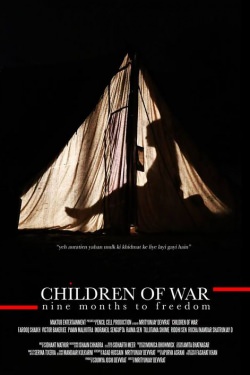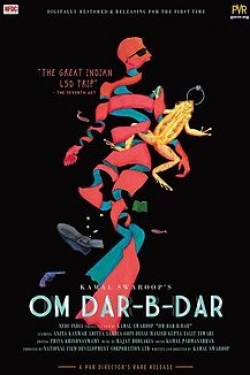Top Rated Films
Uday Bhatia's Film Reviews
-
For a film this saintly, I was disappointed to note the replacement of one kind of prejudice (against housewives) with another (against hired help). Ki and Ka’s maid is shown to be untrustworthy, which is then used as justification by Kabir to install a spycam to keep track of her activities while they’re on holiday. That’s the problem with making a film that considers itself a sort of public service. The higher you raise yourself, the farther you have to fall.
-
The audience I saw it with seemed desperate to find reasons to cheer and whoop—a sad commentary on the balance of power in movie making and watching today. Personally, I find it more than a little depressing that films like these—bloated, inept, making heavy weather out of pieces of pulp entertainment tossed out for children decades ago—have become such an inescapable part of our lives.
-
Stephan James manages to imbue Owens with both a sense of purpose and a sense of humour. He’s more than adequate, in a film that’s barely that. The only other intriguing note is struck by Carice van Houten, whose poker face is perfect for the manipulative genius that was Leni Riefenstahl.
-
All of Reshammiya’s films lie somewhere on the spectrum from so-bad-it’s-good to so-bad-you-want-to-gouge-your-eyes-out. Teraa Surroor has its moments of campy fun…
-
This is a film that’s nominally against mob justice, but nevertheless includes a scene in which a small child is allowed to commit a dragged-out murder while a crowd of people cheer him on. Jha’s cinema has always been about broad strokes for simple folk, and Jai Gangaajal is no exception.
-
The only thing the film cannot dim is the promise shown by Vicky Kaushal. Even in this, his first film (he shot for it before Masaan), he’s a likeable, transparent performer, his face consistently betraying whatever emotions his character is experiencing. I’m sure the audience would have willingly followed him into darker territory. But the film doesn’t seem to believe that, and is left, like its protagonist, fumbling for eloquence.
-
The soul of the film is in the little details—the side glances and nervously tapped cigarettes and jazz records playing in the background—rather than the broader, more easily understood movements of plot and character. If you’re watching Carol, watch it closely. Not a lot happens, but an entire world is revealed.
-
It’s inevitable that any cinematic rendering of gay lives in India will be seen and promoted as an “issue film”. This has certainly been the case with Aligarh, and I hope it sparks conversations about Section 377 in TV studios and living rooms. Yet, an even bigger victory for the film might lie in getting vaguely homophobic viewers to empathize with Siras, to understand his distaste for easy labels, to admit that even they sit in the dark with a drink and listen to old Hindi film songs.
-
The film suggests an unusual emotional impetus for Bhanot’s bravery by linking, through a recurring flashback, her passivity in a recently ended abusive relationship to her decisiveness during the hijacking. It’s a reminder that courage can spring up unbidden, much like the crises that prompt it.
-
Tom McCarthy’s Spotlight is that rare film that is first and foremost about journalism.

























